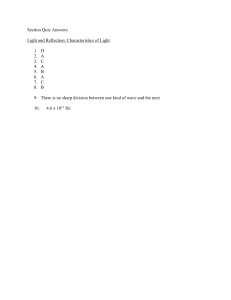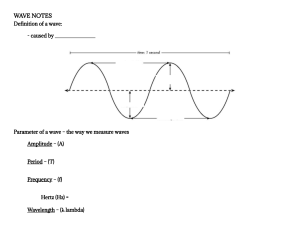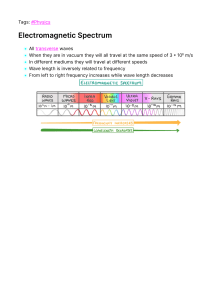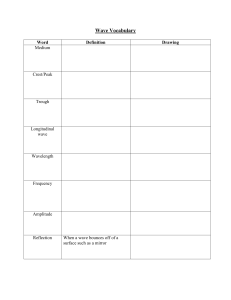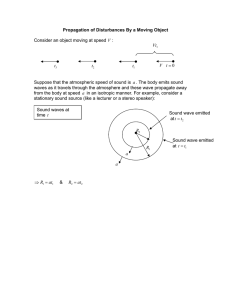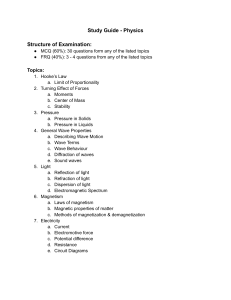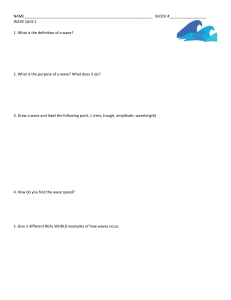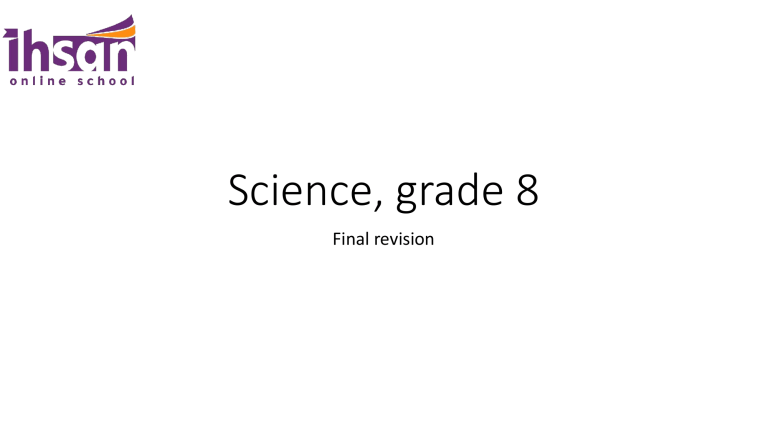
Science, grade 8 Final revision Simple Circuits • Which statement best describes an electric current? A) Energy transfers inside of an electric device. B) Charged particles move through a conductor. C) Type of conductor or insulator. D) The measurement of the electric potential energy in a circuit. • Which conditions would prevent an electric current in a circuit and stop any energy transfer from happening? A) disconnecting a wire B) closing a switch C) removing the battery D) adding a second battery E) opening a switch Simple Circuits • Adding which object to a circuit will create a potential energy difference in a circuit? A) switch B) wire C) light bulb D) battery • An electric current occurs in a circuit because negatively charged particles are repelled by negatively charged particles in a battery. True false • A light bulb is powered by a single D-cell. What happens if two D-cells connected end-to-end are used? A) The light bulb burns brighter because the current will be larger. B) The light bulb burns brighter because the current will be smaller. C) The light bulb burns dimmer because the current will be larger. D) The light bulb burns dimmer because the current will be smaller. Electromagnetism • Which statement is true? A) As the electric current through a wire increases, the magnetic field around the wire becomes stronger. B) As the electric current through a wire increases, the magnetic field around the wire becomes weaker. C) As the electric current through a wire increases, the magnetic field around the wire is unaffected. D) As the electric current through a wire decreases, the magnetic field around the wire becomes stronger. Electromagnetism • Which of the following conditions is necessary for a magnet inside a wire loop to produce an electric current? A) The magnet must be stationary. B) The wire loop must be part of an open circuit. C) The wire loop must already have a current running through it. D) The magnet must be in motion. • In the figure shown, what happens when the amount of current flowing in the wire coil is increased? • A) The magnetic field becomes stronger. B) The magnetic field disappears. C) The position of the north and south poles is reversed. D) The strength of the magnetic field decreases. Electromagnetism • Describe three ways to increase the strength of an electromagnet. increase the current in the wire increase the voltage applied to the wire increase the number of coils of wire insert an iron core Wave Properties • The amplitude of a wave is the distance between a point on one wave and the identical point on the next wave. True False • For a wave, the __large___ the amplitude, the ___more__ energy the wave carries. A) larger, more B) smaller, more C) larger, less D) smaller, same • As the frequency of a wave increases, the wavelength increases. True False • Transverse waves move particles back and forth along the same direction in which the waves travel. True False Wave Properties • To produce sound, an object must be ____. A) moving B) heated C) in a gas D) vibrating • Sound travels fastest in a ____. A) solid B) liquid C) gas D) vacuum • What is the relation between the amplitude of a wave and its energy? Both are proportional to each other, since the energy is equal to the amplitude squared. Wave Properties • Margo participated in a surfing competition. During the competition, the height of the ocean waves increased from two feet to six feet. • a. Identify how many times greater the amount of energy carried by the six-foot wave was than the amount of energy carried by the two-foot wave. Explain your reasoning. The six-foot wave was three times higher than the two-foot wave. Therefore, the amount of energy in the six-foot wave was nine times greater than in the two-foot wave, because the energy of a wave is directly proportional to the square of the amplitude (height). • Margo notices that waves start passing her more often. What can she conclude about the frequency and wavelength of the waves? The frequency is increasing if the waves pass more often, so the wavelength is decreasing. How Light Travels • When light strikes a transparent material, most of the light is reflected. True False • Light carries energy in the form of _radiant_______ energy. • The energy of an electromagnetic wave is related to its amplitude. True False How Light Travels • Frosted glass is an example of which type of material? A) transparent B) translucent C) opaque D) radiant • Light travels faster in air than in water. True False • People tint windows dark to encourage __________. A) transmission B) absorption C) reflection D) transfusion How Light Travels • The brightness of a light is determined by _____. A) air temperature B) intensity of light waves C) wavelength D) wave speed • Describe the path of the waves in each of the following: 1. the interactions of a light wave with a piece of cardboard 2. the interactions of a sound wave with a piece of cardboard Light waves and sound waves will reflect off a piece of cardboard. Light waves and sound waves will be absorbed by a piece of cardboard. A sound wave will transmit through a piece of cardboard, but a light wave will not. Reflection and mirrors • A sharp image is formed when light reflects from a(n) _____. A) rough B) smooth C) absorbent D) black • The reflection of light waves from a rough surface is __diffuse____ reflection. • Give an example of a phenomenon that results in the scattering of light. fog, clouds, dust in the air Reflection and mirrors • Compare and contrast regular reflection and diffuse reflection. Diffuse reflection and regular reflection both follow the law of reflection. The angle of incidence is equal to the angle of reflection for each ray. Regular reflection occurs when the reflection is from a smooth surface. In this case, the surface is flat and the reflected rays of parallel incident rays are parallel, resulting in a sharp image. With a rough surface, the reflected rays of parallel incident rays are not parallel, and a sharp image is not formed.
